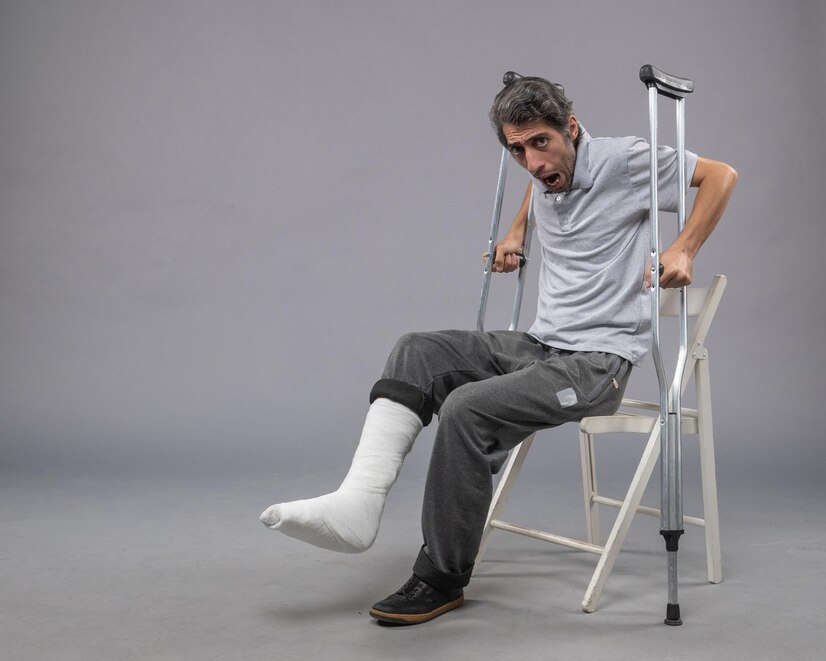Ending up with a broken bone can drastically alter a person’s life. It presents challenges far beyond the initial pain. The road to recovery is often long and filled with physical and emotional obstacles.
Beyond the immediate medical treatment, everyday tasks become burdensome, impacting personal and professional life. This reality often forces individuals to rely heavily on support systems, adapt to new routines, and cope with the frustration of being injured.
In this post, we will discuss the struggles you may face if you, in unfortunate circumstances, sustain a broken bone injury. Read on.
Physical Challenges of Broken Bones
When someone experiences a broken bone, the physical hurdles are often the most immediate and overwhelming. Depending on the severity, fractures can range from simple breaks to complex cases requiring surgery and extensive medical intervention.
For many, mobility becomes a challenge. Activities that people once took for granted, such as walking, lifting objects, or even performing basic household tasks, can only become possible with assistance. Recovery times for broken bones vary; some take weeks to heal, while others require months.
Severe fractures, particularly in older adults, can take up to a year to fully recover, with lingering effects on strength and flexibility. For example, hip fractures in individuals over the age of 65 have a high risk of leading to permanent loss of mobility, with only 50% regaining their pre-injury level of movement.
The Emotional and Psychological Impact
Physical pain is only part of the battle for those suffering from broken bone injuries. The emotional toll is just as severe. The frustration of being dependent on others, coupled with the slow pace of recovery, can lead to feelings of helplessness and depression.
Isolation often accompanies these emotional struggles, especially for those who were once active and independent. Being confined to a bed or limited to crutches or a wheelchair can cause people to withdraw from social interactions, further deepening feelings of loneliness and sadness. It’s not uncommon for patients to experience a dip in their mental health, which can slow the physical recovery process as well.
Financial and Career Setbacks
Another major struggle that comes with broken bone injuries is the financial burden. The cost of treatment, which may include surgery, physical therapy, medications, and follow-up appointments, can quickly add up. In the U.S., the average price for treating a broken leg alone can reach upwards of $35,000, and that doesn’t account for lost wages due to time off work.
For those in physically demanding jobs, the inability to perform their duties can mean extended time away, reduced income, or even the loss of employment. Studies show that nearly 40% of people who suffer a significant fracture need to take extended time off work, with some unable to return to their previous roles due to long-term complications. This financial strain and the physical and emotional toll can make the recovery process even more stressful.
The Long Road to Rehabilitation
Rehabilitation is a vital part of the recovery process for broken bone injuries. Depending on the location and severity of the fracture, rehabilitation can take weeks, months, or even years. Physical therapy often involves painful exercises to regain strength, flexibility, and movement in the affected area.
For some, achieving the road to full recovery is only partial. Complications such as muscle atrophy, stiffness, and lingering pain can persist long after the bone has healed. People who suffer fractures may experience chronic pain or ongoing issues related to their injury, making it difficult to return to the activities they once enjoyed.

Social and Lifestyle Adjustments
Life after broken bone injuries often means adjusting to new limitations. Activities that once seemed simple, like driving, exercising, or even walking up the stairs, may become challenging. This can drastically affect a person’s lifestyle, particularly for those who were active before the injury.
The need for assistance, either with mobility devices or the help of family and friends, can be a difficult adjustment. For many, losing a sense of independence is as painful as the injury itself. This reliance on others can also strain personal relationships, as caregivers may feel overwhelmed, and patients may feel guilty for needing help.
In conclusion, broken bone injuries bring with them a host of challenges that go far beyond the physical pain of the fracture. The emotional, financial, and social impacts can be profound, with recovery often requiring far more time and effort than anticipated.

 Join Daily Trust WhatsApp Community For Quick Access To News and Happenings Around You.
Join Daily Trust WhatsApp Community For Quick Access To News and Happenings Around You.


